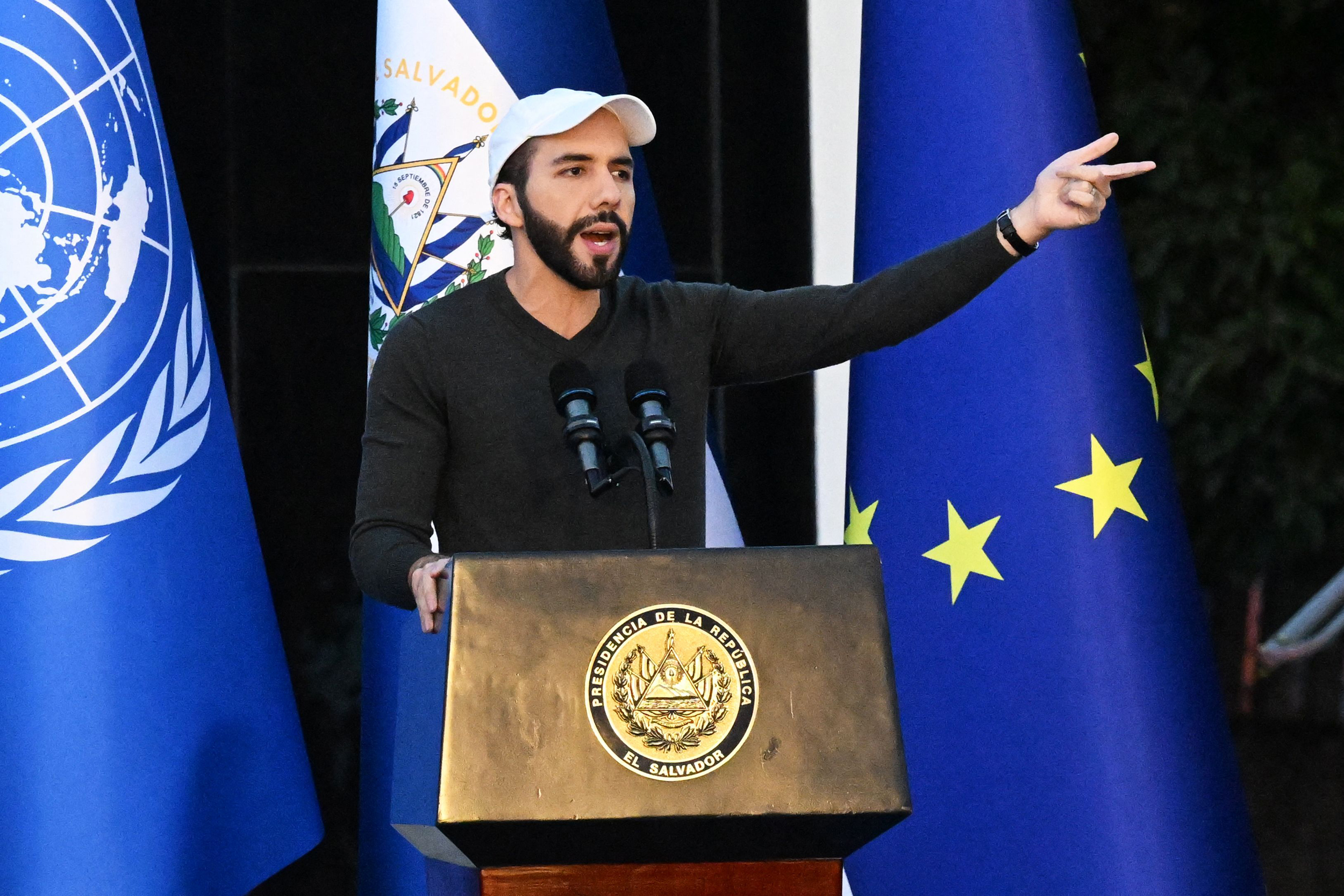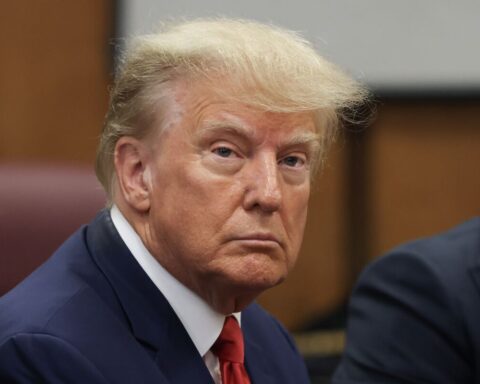Salvadoran President Nayib Bukele has taken the bold step of filing paperwork for his reelection bid in the upcoming 2024 presidential election, slated for February.
Bukele, known for his advocacy of Bitcoin, garnered strong public support when his party officially nominated him for a second term on October 26.
Addressing a large gathering of Salvadorans, he declared, “Five more [years], five more and not one step back. We need five years to continue improving our country.”
Bukele ascended to power in 2019, marking a historic shift away from the two-party dominance that had lasted for three decades between the Nationalist Republican Alliance and the Farabundo Martí National Liberation Front.
However, despite his popularity among the local populace, critics, including Salvadoran lawyer Alfonso Fajardo, argue that the country’s constitution forbids consecutive presidential terms.
Fajardo pointed out, “Nayib Bukele is running for reelection in El Salvador despite the fact that it’s prohibited in 7 articles of the constitution.
The constitution was drafted after our peace accords, after our bloody civil war. This is unconstitutional.”
Notably, in September 2021, El Salvador’s Supreme Court ruled in favor of presidential consecutive reelections, thereby clearing the way for Bukele’s candidacy. Bukele’s party, New Ideas, boasts the support of a significant 70% of the country’s voting population, dwarfing its closest competitor, which only received 4% of the total votes.
READ MORE:SOL Token Surges Above $32 as VanEck Predicts Stellar Future for Solana
Despite opposition, including a lawsuit from one of New Ideas’ competitors, FMNLB, alleging the unconstitutionality of Bukele’s Bitcoin adoption program, the initiative proceeded as planned.
El Salvador officially made Bitcoin legal tender three months later in September 2021.
The Bukele administration has also embraced tech-friendly policies, such as the elimination of taxes on technological innovations, aimed at bolstering the nation’s economy.
Gabor Gurbacs, a strategy advisor at VanEck, even speculated that El Salvador has the potential to become the “Singapore of the Americas.”
Bukele’s popularity has been bolstered by his resolute crackdown on MS-13, a transnational gang that had contributed to El Salvador’s status as the country with the highest homicide rates in the world six years ago.
Thanks to these efforts, El Salvador’s homicide rate has plummeted by a remarkable 92.6% since its peak of 106 per 100,000 inhabitants in 2015, now standing at just 7.8 in 2022.
The nation now boasts one of the lowest crime rates in Latin America.
However, it’s crucial to note that Bukele’s approach has not been without controversy, as the United Nations and other critics argue that El Salvador violated human rights laws by imprisoning 65,000 individuals without affording them legal rights to defend themselves.
With the presidential election scheduled for February 4, 2024, El Salvador is poised for a pivotal moment in its political landscape as Nayib Bukele seeks to continue his transformative leadership.
Discover the Crypto Intelligence Blockchain Council




